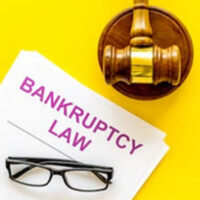What Happens If I Am Ineligible for Chapter 7 Bankruptcy?

Are you currently considering filing for personal bankruptcy? If so, you may be thinking specifically about Chapter 7 bankruptcy, which is a type of liquidation bankruptcy. When consumers think about bankruptcy, they are often thinking about Chapter 7 bankruptcy, which goes relatively quickly from the stage of filing to the debtor receiving a discharge of eligible debts. However, there are eligibility requirements for Chapter 7 bankruptcy, and not all debtors are eligible. If you do not qualify for Chapter 7 bankruptcy, you may be wondering: what are my options? Our St. Petersburg bankruptcy lawyers can explain, and we can assist you with your bankruptcy options.
Understanding Chapter 7 Eligibility
Before we explain your bankruptcy options if you do not qualify for Chapter 7 bankruptcy, we want to clarify how an individual debtor proves their eligibility for this type of bankruptcy. In short, any individual (or married couple) who wants to file for Chapter 7 bankruptcy usually must pass the “means test.” The means test is designed to determine if your assets and income are low enough such that a discharge of your debts following the liquidation of non-exempt assets would be abusive or not.
If you earn a current monthly income that is less than the Florida median for your family size, then you will not actually need to take the means test — you will already qualify for Chapter 7 bankruptcy. Most individuals do need to take the means test, however, which involves deducting your monthly expenses from your disposable income. If the remaining disposable income is low enough, you will pass the means test and qualify for Chapter 7 bankruptcy.
Bankruptcy Options Beyond Chapter 7
If you cannot pass the means test and do not qualify for Chapter 7 bankruptcy, we want to emphasize that you will likely have other options. Most often, individuals who want to file for bankruptcy and do not qualify for Chapter 7 will qualify for Chapter 13 bankruptcy. This is a type of reorganization bankruptcy. In this kind of bankruptcy filing, you will make regular payments according to the terms of a repayment plan over a three to five year period. At the end of the plan’s terms, remaining eligible debts can be discharged.
For many debtors, Chapter 13 is actually preferable to Chapter 7 because it can stop a foreclosure and allow you to remain in your home and get caught up on mortgage payments. Chapter 13 bankruptcy also does not involve the liquidation of any assets, so you will not have to worry about any of your property being liquidated.
Most individuals will qualify for Chapter 13, but if your debts are too high, you can still be eligible to file for Chapter 11 bankruptcy, which is another type of reorganization bankruptcy.
Contact a St. Petersburg Bankruptcy Lawyer for Assistance
If you are considering a personal bankruptcy filing in Florida, it is important to discuss your eligibility for types of bankruptcy with a lawyer who can help. As we discussed above, even if you are not eligible to file for Chapter 7 bankruptcy, there are likely other bankruptcy options that can help you with debt relief. An experienced St. Petersburg bankruptcy attorney at the Law Offices of Stephen Barszcz can speak with you today about your options. Contact us to learn more about how we can assist you.
Sources:
law.cornell.edu/uscode/text/11
justice.gov/ust/means-testing
